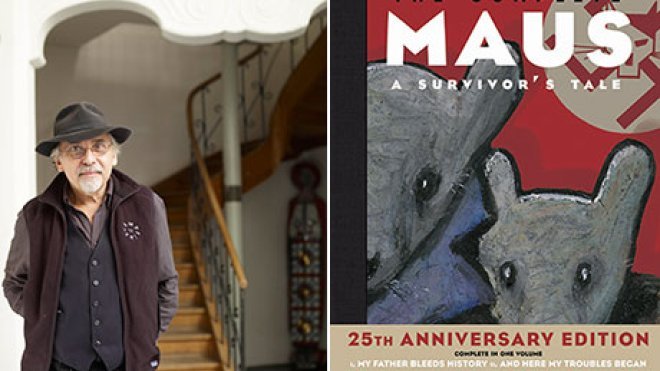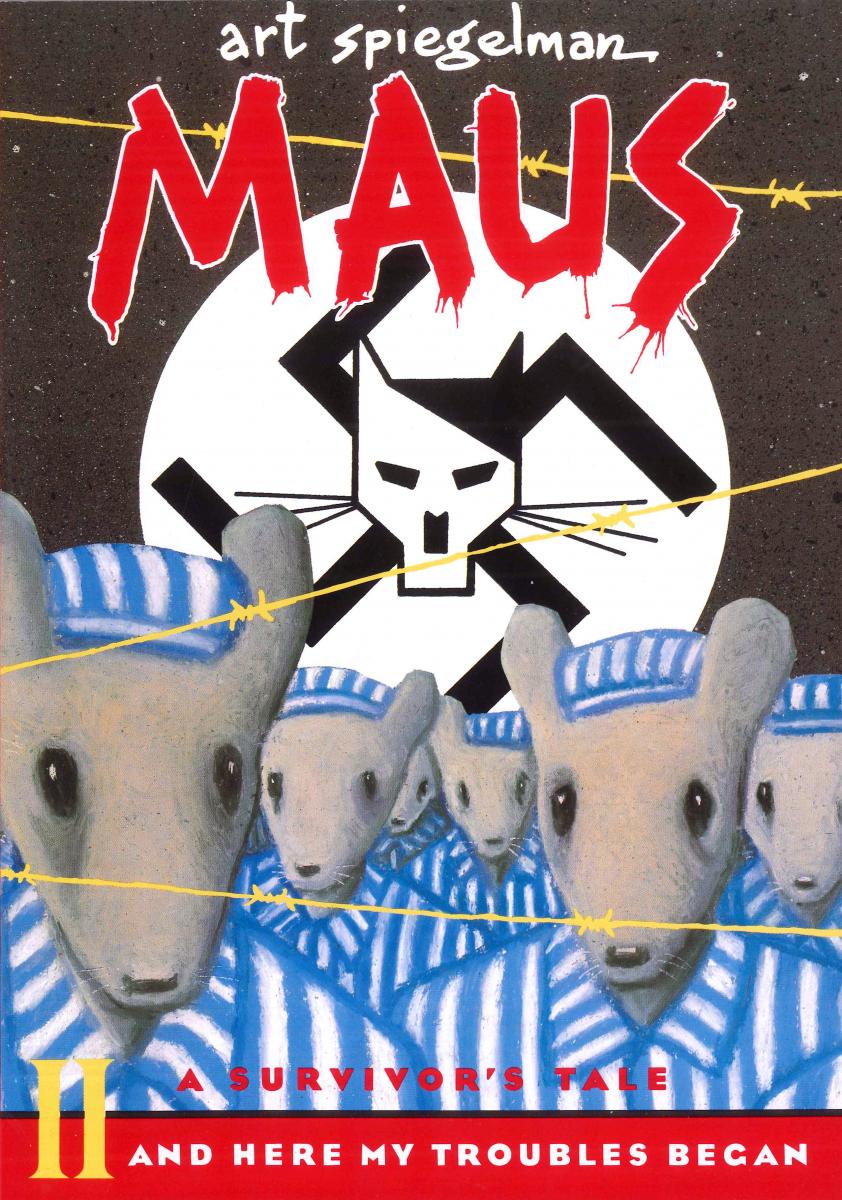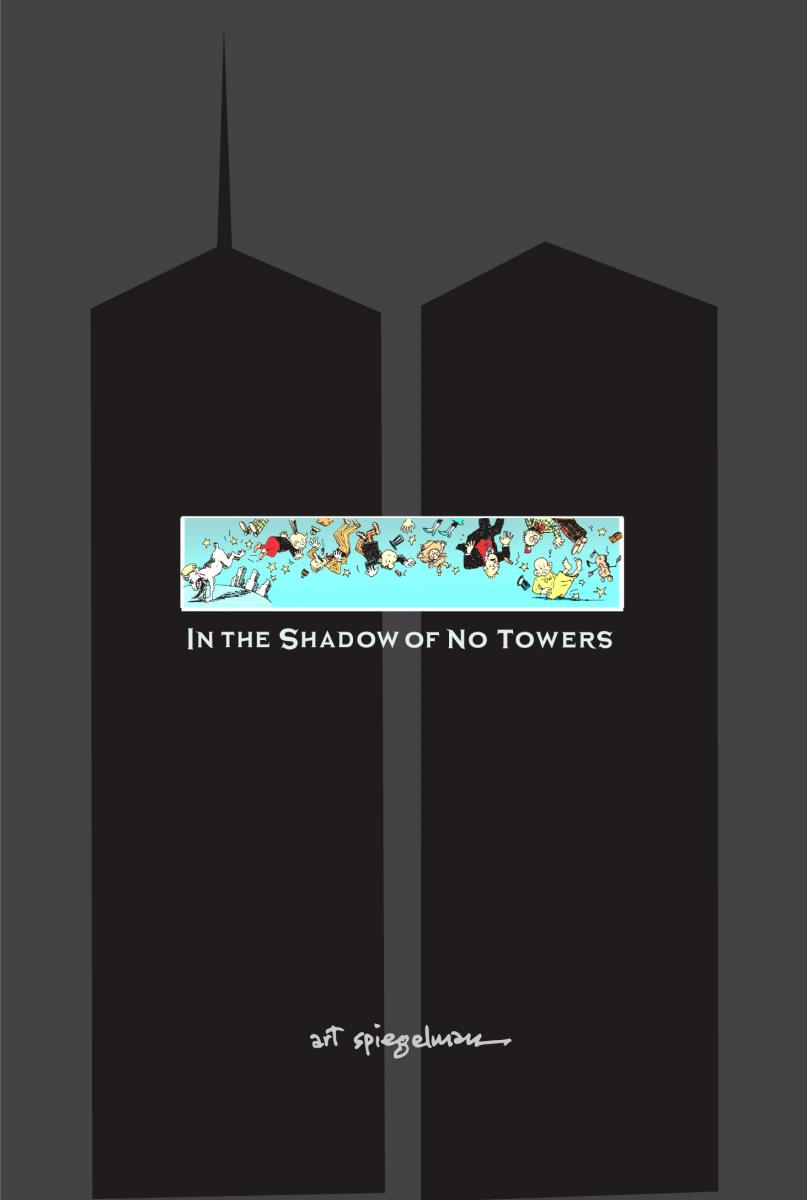What the %@&*! Happened to Comics?: Graphic Novelist Art Spiegelman to Visit RWU on Sept. 7
Community invited to President’s Distinguished Speakers Series event featuring Pulitzer Prize-winning author and illustrator of graphic art and novels

BRISTOL, R.I. – From creating controversial New Yorker covers to launching the graphic novel into contention as serious literature, Art Spiegelman does not shy away from drawing attention to society’s most pressing problems through his works. A pioneer in the underground “comix” scene since the 1960s, Spiegelman creates haunting works of graphic art that have brought readers inside the death camps of the Holocaust, to the phantom space where the Twin Towers once stood, and most recently, throughout the abandoned immigration checkpoint at Ellis Island, where etched upon the walls were ghostly reminders of the millions who had passed through to start a new life in America.
On Wednesday, Sept, 7, members of the campus community and the public are invited to spend an evening with Spiegelman – Pulitzer Prize-winning author and illustrator of the landmark graphic novel, Maus – as part of the President’s Distinguished Speakers Series at Roger Williams University. 
The conversation will feature a multimedia presentation that takes the audience on a chronological journey of the evolution of comics and focus on the power of this art form to illuminate prejudice and fear as well as to cultivate a sense of humanity and compassion that crosses all cultures. In his presentation – “What the %@&*! Happened to Comics?” – Spiegelman will examine the value of the medium and why it should be celebrated, not ignored.
“Graphic art has opened an important dialog around the world on human rights, freedom of speech and censorship, and Art Spiegelman is the foremost authority on pushing the boundaries of the intersection of graphic art and politics,” says RWU Professor of Political Science Robert Eisinger. “His work transcends disciplinary boundaries to become at once art, politics, history and cultural studies. As we think about the meaning of freedom of expression and freedom of the press, we must remember that in some countries his work would be considered illegal, dangerous and forbidden, which makes his art that much more powerful, influential and relevant.”
In 1992, Spiegelman earned worldwide acclaim for bringing comic books into the spotlight as meaningful literature when he won the Pulitzer Prize for his masterful narrative, Maus, which depicted his father’s story of surviving the Holocaust with Nazis portrayed as cats and Jews as mice. The New Yorker called it “the first masterpiece in comic book history,” and the Wall Street Journal hailed it as “the most affecting and successful narrative ever done about the Holocaust.” Thirty years later, The Washington Post continues to praise it as “the greatest graphic novel ever written.”
He continued to explore the story of his parents’ survival of the Nazi regime and their lives in America with Maus II, and later published MetaMaus – about why he wrote the series – which received the 2011 National Jewish Book Award. 
Spiegelman has continued to push the boundaries of provocative art, claiming a spot on Time Magazine’s “100 Most Influential People” list in 2005 and the distinction of being one of a select few Americans to receive the honor of Grand Prix at the 2011 Angoulême International Comics Festival.
After beginning his career as the creator of Wacky Packages and Garbage Pail Kids, Spiegelman founded the comics anthology RAW, with his wife, Françoise Mouly. He has written several graphic novels, including the autobiographical Breakdowns, and a series of broadsheet-sized color comics pages, In the Shadow of No Towers, which made it onto many national bestseller lists and was selected by The New York Times Book Review as one of the “100 Notable Books of 2004.” In 2015, he collaborated with renowned artist JR on The Ghosts of Ellis Island.
Spiegelman’s presentation is also part of a yearlong series of academic programming at RWU that will explore and celebrate the stories of refugees around the world and the political and cultural impact of the refugee movement on society.
The Sept. 7 lecture will take place in the Roger Williams Campus Recreation Center on the University’s Bristol campus at One Old Ferry Road. The event will begin at 7:00 p.m. It is free and open to the public; no tickets are required. For more information, call (401) 254-3154.
Launched in 2011, the President’s Distinguished Speakers Series at Roger Williams University invites thought leaders from a wide range of disciplines to share perspectives, inspire conversations and enrich the intellectual lives of students, faculty and staff at Roger Williams as well as members of the local community. As part of the series, each guest is invited to devote much of the daylong visit to direct engagement with students in classroom sessions, offering RWU students unique opportunities for one-on-one interactions with some of the world’s leading authors, scholars, artists and public servants.